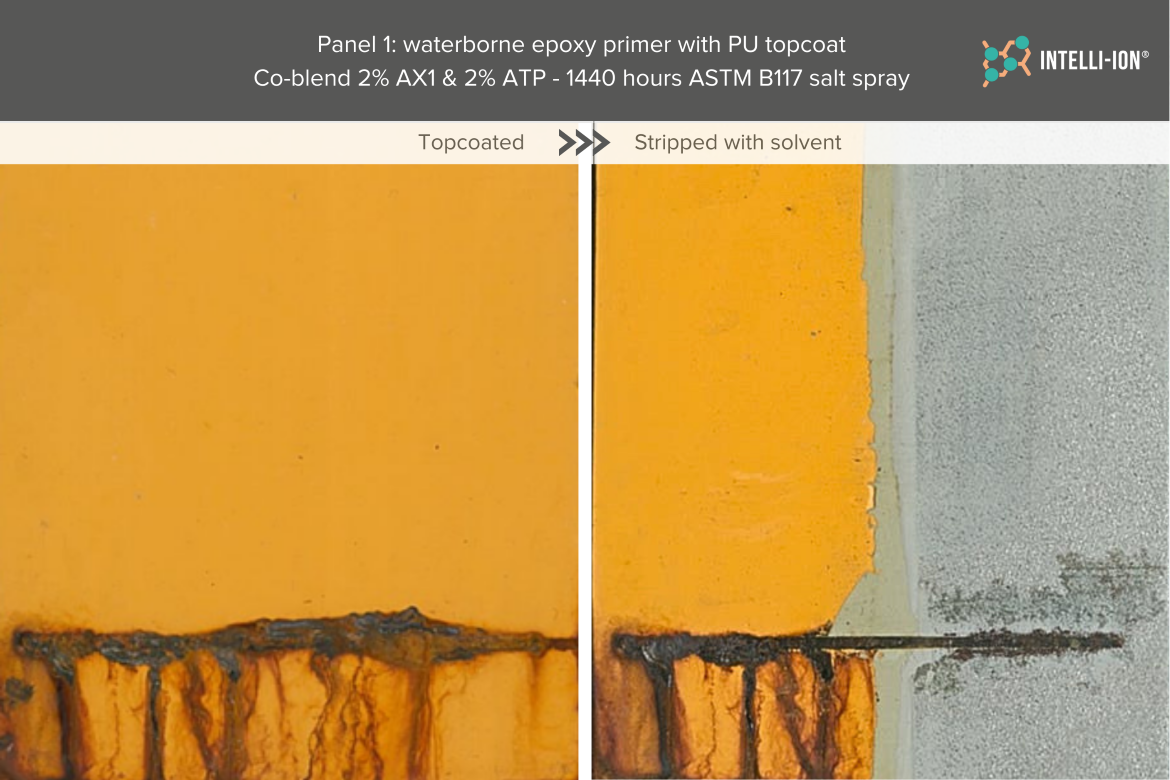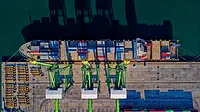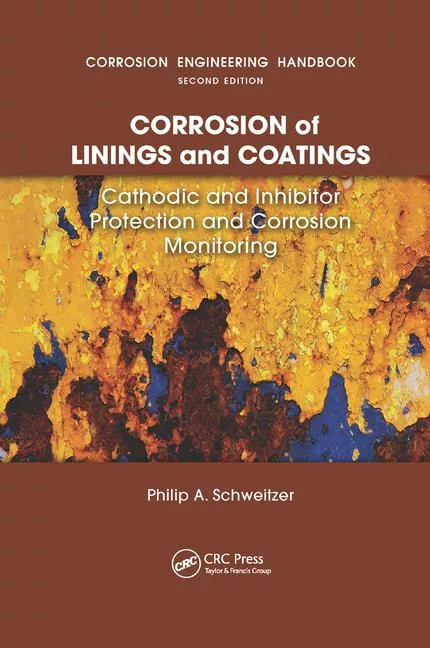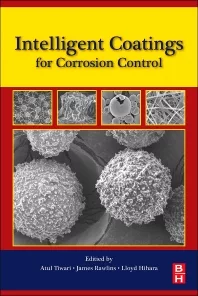Sustainable C5 Corrosion Protection for Primer Coatings

Wengen Ling, iStock / Getty Images Plus, via Getty Images.
C1-C5 are classifications used to describe the level of corrosion resistance required for aggressive environments and applications. C5 refers to highly corrosive environments, where the steel structure is exposed to high levels of humidity, saltwater spray, and other corrosive substances. Many coatings manufacturers formulate coatings to provide protection in these conditions – such as offshore oil and gas platforms, coastal areas, and chemical plants.
The coatings that have been tested were formulated at the Paint Research Association (PRA)– a UK-based organization that provides technical and scientific support to the global coatings industry. The REACH-compliant inhibitors were added to both waterborne (WB) and solventborne (SB) 2-pak epoxy coatings – with primer only as well as top-coated systems tested.
Figure 1| Waterborne epoxy primer with PU topcoat.

Figure 2 | Solventborne epoxy primer with PU topcoat.

The panels used for testing were shot-blasted to Sa2.5, as per C5 specification. Each primer layer had an average dry film thickness (DFT) of 120 µm and the top coat was applied at approximately 60 µm. After 1,440 hours salt spray testing (SST) to ASTM B117, both the primer and full system for the WB epoxy and SB epoxy displayed zero signs of blistering in the coating system. To demonstrate the full performance of both systems with AX1 in, we removed half of the paint system to view the substrate underneath. The WB epoxy system after 1,440 hours shows minimum corrosion at the scribe – evidencing Intelli-ion’s excellent performance in WB systems. The SB epoxy system also meets specifications with no blistering, minimum cross scribe corrosion, and no undercoat corrosion present on the full substrate.
Dr. Catherine Friar, Business Development Manager at Hexigone Inhibitors, commented, “Our award-winning technology provides exceptional protection to infrastructure in key sectors, as well as helping to address environmental challenges faced by the coatings industry. Reaching 1,440 hours allows existing manufacturers of C5 standards of paint to switch to more sustainable inhibitors; or facilitate new C5 REACH-compliant product lines through sustainable waterborne or low-VOC solventborne coatings. These preliminary results indicate that the coating systems would meet the high durability requirements of the ISO 12944:2018 C5 corrosivity category. Further testing is ongoing.”
Unlike zinc phosphate, which primarily provides anodic protection via precipitation, Intelli-ion offers both anodic and cathodic corrosion protection. The technology is released in a smart way and works by forming a protective nanolayer on the metal surface, which provides a physical barrier to corrosion-inducing substances. Intelli-ion also has unique electrochemical properties that enable it to donate or accept a proton, moderating under-film pH. The final mode of protection happens once it has donated a proton to OH- ions resulting from the cathodic oxygen reduction reaction. It then forms a lone pair-bonded layer over the metal surface at the cathode, blocking interfacial electron transfer.
The three modes of electrochemical protection are unique on the market and have received recognition through winning the British Coatings Federation’s ‘Sustainable Innovation – Supplier’ category in 2022. The company has also been awarded an EcoVadis Gold rating for its sustainable business practices. Hexigone invites coatings manufacturers worldwide to join forces and co-create high-performance, sustainable, smart coatings.
For more information, join one of Hexigone’s upcoming introductory webinars: https://www.hexigone.com/webinars.
Looking for a reprint of this article?
From high-res PDFs to custom plaques, order your copy today!









